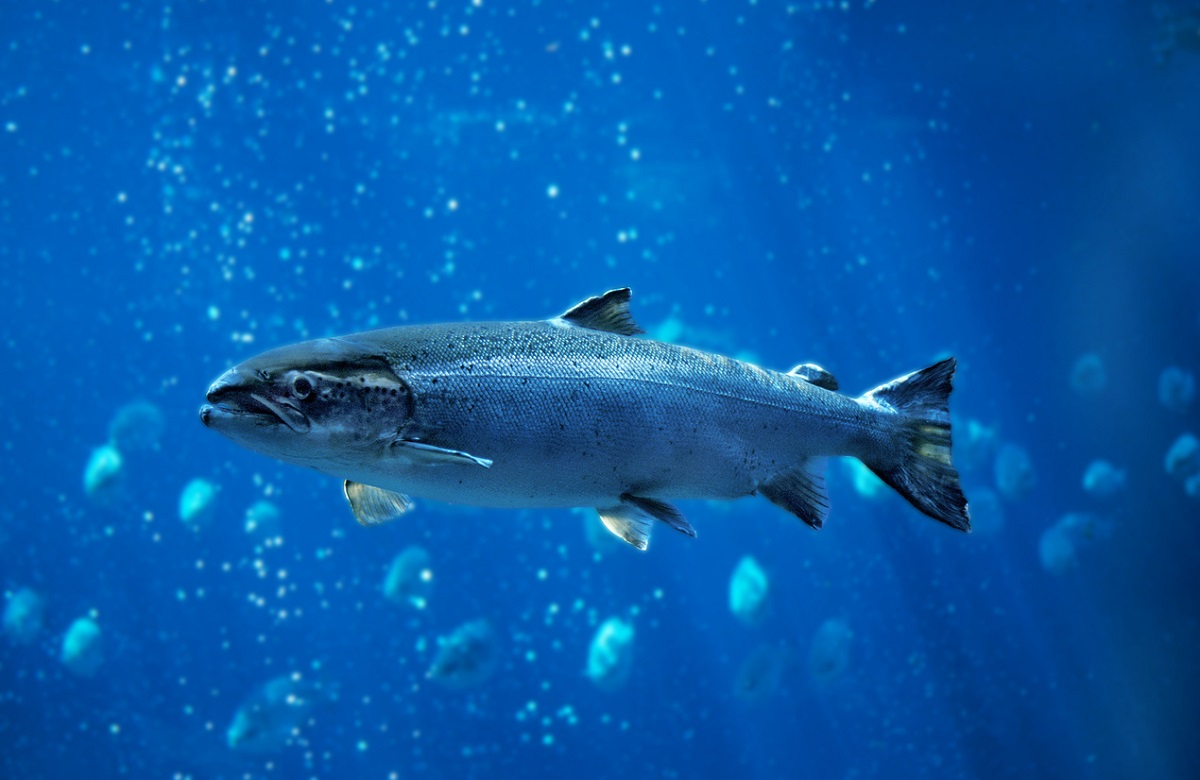Can Plant-based Oil Sources Help Achieve Sustainable Aquaculture?
| |
Consuming oily fish has long been proven to have beneficial effects on humans. Regular intake of omega-3 fatty acids reduces the risk of cardiovascular disease and myocardial infarction. But the growing demand for this healthy fish oil is taking a toll on the world's fish supply, marine environment, and the planet's natural resources. Fortunately, modern biotechnology offers a solution to make aquaculture more sustainable through plant-based technologies. Genetically modified (GM) crops are now grown to produce omega-3 fatty acids for animal feed as an alternative to harvesting the oil from fish stocks.

Demand for fish oil
One of the factors that drive salmon aquaculture is the demand for omega-3 fatty acid, which is found in fish oil. In nature, big fish such as salmon get the oil and store it in their bodies when they consume smaller, fatty fish like anchovies and herring, which in turn consume algae. But in aquaculture farms, omega-3 fatty oil becomes an essential ingredient of fish feed. Thus, scientists found it important to find alternative solutions to meet the demand for omega-3 oils. A review published by Jonathan Napier and Monica Betancor in Plant Biotechnology documented the recent examples of scale-up and transition of sourcing out omega-3 fatty acids from oceanic-derived fish oils as feed ingredients and the emerging transgenic plant sources for these oils
Transgenic plants that produce omega-3 fatty oil
Scientists have genetically modified camelina and canola plants to produce healthy oils. They belong to the family Brassicacea which are known to be excellent hosts for the transgenic accumulation of omega-3 long-chain polyunsaturated fatty acids (LC-PUFAs). In 2020, US-based company Nuseed announced that it was ready to release the first land-based source of omega-3 oils into the global aquaculture market. They were able to complete the processing of the oil from 14,000 hectares of canola in the US, and it was set to become available for aquaculture feed and human nutrition. Multi-location trials of oil-producing plants like that of Nuseed’s have demonstrated that these genetically modified crops can perform well and can potentially meet the demands. And more recently, gene editing was used along with transgenesis to enhance the accumulation of EPA + DHA in Camelina by inactivating competing endogenous pathways. These technologies make it possible to source out healthy oils on land instead of obtaining them from marine resources.

Using plant-based omega-3 fatty oil as fish feed
As mentioned, eating algae is the starting point for bigger fish to obtain omega-3 fatty oils. For farmed fish, microalgae and other marine organisms are eaten by small fish, and the oils from these small fish are fed to the farmed fish as an ingredient of fish feed. The more sustainable alternative to this conventional method is to use plant-based sources of omega-3 fatty oils. Algal genes are added to GM plants to make EPA + DHA in seeds. The healthy oils extracted from these seeds are then fed to farm fish which are harvested to supply demands for fish as food for humans and as a source of omega-3 oils. This alternative is less likely to deplete marine resources than the conventional method.
And like any new technology, using plant-based omega-3 oil as a fish food ingredient must be validated and backed by scientific data. Various trials have been conducted, and results demonstrated the following:
- Freshwater fingerlings fed with GM canola oil had the same growth and survival as those fingerlings fed with a diet that contained fish oil.
- Fish fed with GM oils had enhanced levels of LC-PUFA in their flesh compared to those fed with commercial diet and with wild Camelina.
- The use of vegetable oils rich in omega-3 LC-PUFA had added benefits to the fish, like reduced liver fat infiltration.
- No adverse effects in fish fed with the novel oils were reported.

The future of novel oils
Based on the data obtained by different trials, it is possible for GM plant-based oils to meet the nutritional demands of both fish and human consumers in a more sustainable manner that does not leave heavy carbon footprints on the planet. Further approaches are proposed or are in the pipeline to enhance the use of novel oils for aquaculture:
- Combining different traits to produce a multi-functional crop to specifically meet the needs of aquaculture;
- Combining the EPA+DHA trait with other high-value components of aquafeed diets that can be produced in different transgenic hosts;
- Enhancing the amino acid composition and seed storage proteins to produce a more suitable nutrient composition for fish feeds;
- Using gene editing to remove compounds such as glucosinolates, which can act as feeding deterrents for some fish species.
By exploring other options to obtain omega-3 fatty acids, planetary resources do not have to be depleted, marine biodiversity can be conserved, and carbon footprints can be reduced, while still meeting the aquaculture and human nutritional demands and alleviating food insecurity. Biotechnology is vital to achieving all these.
| Newer Post | Archive | Older Post |
Science Speaks is ISAAA Inc.'s official blog. Weekly blog articles, authored by ISAAA writers, partners, and invited contributors, aim to help share, disseminate, and promote scientific knowledge and its vital role in achieving global agricultural sustainability and development. Your support to Science Speaks will help us achieve this goal. You can help us by donating as little as $10.

